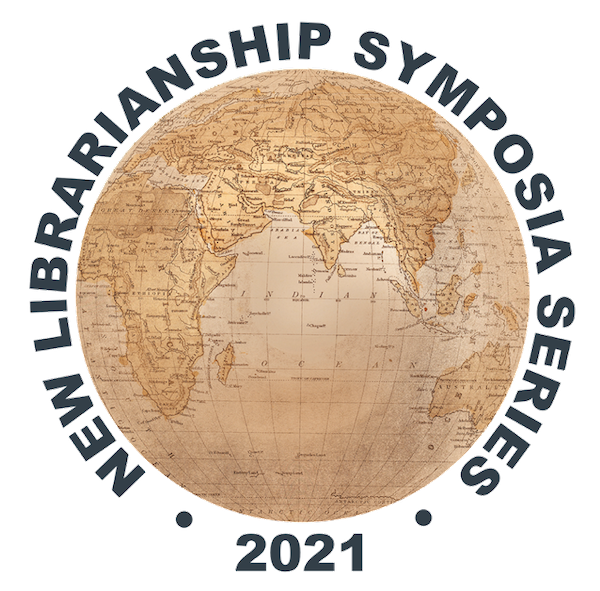Health Information Access as a Human Right
Submission Type
Paper Abstract Submission
Symposium Selection
A “new normal” agenda in a COVID-affected world
Keywords
Universal Declaration of Human Rights, Health Information, Sociology, Health Literacy, Library Practice, Misinformation
Abstract
Librarians have long been at the forefront of information literacy promotion and the fight against the propagation of misinformation. Never before the Covid-19 pandemic has the health cost of such issues been so transparent. Over the last year and a half, leaders of privileged institutions have weaponized misleading or false health information to benefit their own self-interests. This behavior, along with mirrored responses by their constituencies, has quickly habituated into a pervasive societal mistrust that spans across the globe and has impacted the social construction of reality in such a way that it is imperative our institutions respond.1
In this presentation, the author will argue that access to quality health information is fundamental to the United Nations Universal Declaration of Human Rights and that states and institutions must assert this to be true. Specifically, access to quality health information is guaranteed thrice over: by article 19, which asserts the right of people to receive and impart information without interference, by article 25, which guarantees the right to a standard of living to maintain health, and by article 27, which promises the right to share in the benefits of scientific advancement.2 Combining a sociological lens and a human rights justification, a compelling case will be presented as to why there must be widespread recognition of the right to credible, unfiltered health information, and why advocating for this falls to information science professionals.
Next, the author will outline a path for such advocacy work within information institutions. This approach is two fold: First, librarians must build individual and community health literacy in times of peace. It is not enough to promote these skills to willing individuals conveniently located within the walls of a building. The pandemic demonstrated that health literacy is both an individual and a community issue, and it must be addressed as such. This can be accomplished by advocacy work that starts in the library and reaches out. Second, information professionals must combat misinformation in times of crisis. If there is a ‘new normal,’ it will likely be characterized by repeated upheaval brought on by issues such as climate change, wars, and disaster. In such times, it is the role of the information professional to combat misinformation with vigilance using the skill set that is foundational to our profession.
The basic thread throughout is a call to our communities to fight against leaders of government and industry who would brandish erroneous health information for the benefit of inciting fear, creating polarization between individuals, and maintaining power over the citizenry to the degradation of their health and our democratic institutions.
-
Berger, P. L., Berger, P. L., & Luckmann, T. (1966). The social construction of reality: A treatise in the sociology of knowledge. Anchor.
-
Assembly, U. G. (1948). Universal declaration of human rights. UN General Assembly, 302(2), 14-25.
Health Information Access as a Human Right
Librarians have long been at the forefront of information literacy promotion and the fight against the propagation of misinformation. Never before the Covid-19 pandemic has the health cost of such issues been so transparent. Over the last year and a half, leaders of privileged institutions have weaponized misleading or false health information to benefit their own self-interests. This behavior, along with mirrored responses by their constituencies, has quickly habituated into a pervasive societal mistrust that spans across the globe and has impacted the social construction of reality in such a way that it is imperative our institutions respond.1
In this presentation, the author will argue that access to quality health information is fundamental to the United Nations Universal Declaration of Human Rights and that states and institutions must assert this to be true. Specifically, access to quality health information is guaranteed thrice over: by article 19, which asserts the right of people to receive and impart information without interference, by article 25, which guarantees the right to a standard of living to maintain health, and by article 27, which promises the right to share in the benefits of scientific advancement.2 Combining a sociological lens and a human rights justification, a compelling case will be presented as to why there must be widespread recognition of the right to credible, unfiltered health information, and why advocating for this falls to information science professionals.
Next, the author will outline a path for such advocacy work within information institutions. This approach is two fold: First, librarians must build individual and community health literacy in times of peace. It is not enough to promote these skills to willing individuals conveniently located within the walls of a building. The pandemic demonstrated that health literacy is both an individual and a community issue, and it must be addressed as such. This can be accomplished by advocacy work that starts in the library and reaches out. Second, information professionals must combat misinformation in times of crisis. If there is a ‘new normal,’ it will likely be characterized by repeated upheaval brought on by issues such as climate change, wars, and disaster. In such times, it is the role of the information professional to combat misinformation with vigilance using the skill set that is foundational to our profession.
The basic thread throughout is a call to our communities to fight against leaders of government and industry who would brandish erroneous health information for the benefit of inciting fear, creating polarization between individuals, and maintaining power over the citizenry to the degradation of their health and our democratic institutions.
-
Berger, P. L., Berger, P. L., & Luckmann, T. (1966). The social construction of reality: A treatise in the sociology of knowledge. Anchor.
-
Assembly, U. G. (1948). Universal declaration of human rights. UN General Assembly, 302(2), 14-25.


